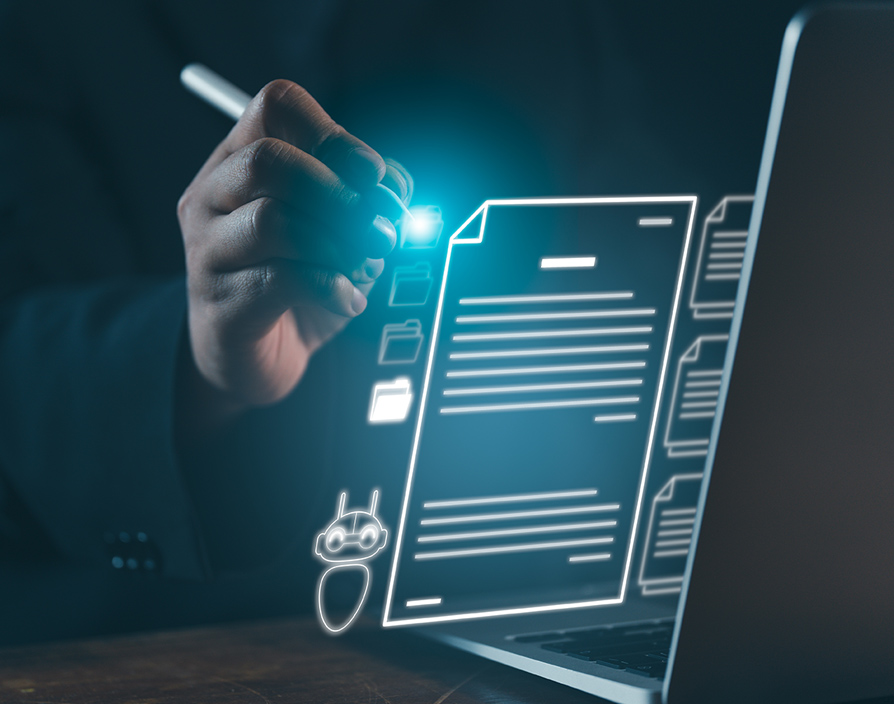In today’s fast-paced business world, efficiency and accuracy is paramount. Therefore, following the rapid developments in artificial intelligence (AI), tasks which were once considered time-consuming, tedious and expensive, have been simplified by this modern software phenomenon.
In the world of law, these aforementioned time-consuming, tedious and expensive duties might include the drafting of commercial documents. However, while AI offers numerous benefits, it does in my opinion present its own set of challenges. And caution needs to be applied.
This article explores the advantages and pitfalls of using AI to draft documents and I will explain why the expertise of advisors remains indispensable.
The benefits
Today’s AI software will generate contracts, agreements and other legal items in a fraction of the time it would take a human. By automating repetitive tasks, AI frees up valuable time for both business owners and legal advisors to focus on more strategic matters.
However, the accuracy and detailed nature of such documents will depend on how skilled the software user is at training the system. By saving valuable time, it is obviously cost-effective, making AI a more affordable alternative than hiring a human to draft documents.
That said, it is vital for documents to retain a sense of reliability: If a dispute occurs further down the line, this will be the moment when the benefits of using AI will be fully tested.
Yet, there are always benefits for creating standardisation. AI ensures consistency across all documents, maintaining uniformity in language, formatting, as well as style. This is especially beneficial for businesses with multiple branches or subsidiaries.
The perils
Lack of context: While AI excels at processing large amounts of data, it may struggle to grasp the nuances of a particular situation. Contextual understanding, which is crucial in legal matters, is an area where AI often falls short. For example: Which template of document should be chosen and how complex should it be? Is it protecting the founder of the business or perhaps the investor?
Then there is legal liability. Errors or omissions in AI-generated documents can have serious legal consequences. Businesses must carefully review and validate documents to ensure compliance with relevant laws and regulations. Therefore, over-reliance on AI has the potential to create issues.
Which clauses has the software forgotten to include? In the real world of humans, skilled ‘document drafters’ will work their way through legislation, deleting and amending as they go, while understanding the context. And, of course, is the information that AI is using to create these documents completely up to date?
Data privacy is another issue. Entrusting sensitive information to AI raises concerns about data privacy and security. Unauthorised access or breaches could expose confidential business information to risk. AI is proficient at generating standard legal documents but this type of automation does lack creativity and intuition, especially the more complex cases.
Certain legal matters demand human expertise. Legal experts use their experience, judgement and skills to anticipate problems which may arise in the future – somethingAI would struggle to achieve.
Why solicitors are still essential
Beyond the process of ‘document drafting’, solicitors provide tailored advice based on their understanding of a client’s needs and objectives. They offer strategic insights and recommendations. Solicitors also understand the broader commercial implications of legal decisions.
They help clients to assess risks, negotiate contracts, and devise strategies to protect their personal interests in a competitive marketplace. From contract negotiations to the resolving of disputes, solicitors offer practical assistance at every stage of the legal process. Their guidance ensures that clients make informed decisions and achieve favourable outcomes for themselves.
For technology-based businesses, bespoke documents are essential and here are a few reasons why:
Complexity of technology
Technology-related contracts and agreements often involve intricate details and specialised language. This is often ignored by AI algorithms. Bespoke documents allow for customisation to address the unique aspects of the technology being developed. As the technology might not yet exist, AI would probably struggle to understand this concept.
Risk mitigation
Tech businesses operate in a dynamic and rapidly evolving environment where legal risks can be high. Bespoke documents, crafted by solicitors, provide tailored solutions to mitigate these risks.
Regulatory compliance
The technology sector is subject to a myriad of regulations and industry standards. This is especially crucial on issues such as data privacy, intellectual property rights and cybersecurity. Everything must refer back to the same processes, contracts and policies. Therefore, staff members need to be comprehensively trained on these topics.
Protection of Intellectual Property
Intellectual property (IP) is the lifeblood of tech companies. To protect IP fully, this task is more likely to be expertly executed by a skilled solicitor, rather than a segment of computer coding.
Flexibility and adaptability
Technology businesses frequently engage in innovative projects and collaborations which may not fit easily into standardised templates.
Enhanced negotiation leverage
Well-drafted bespoke documents can strengthen a tech business’s negotiating position when dealing with partners, suppliers, investors or clients. Bespoke agreements provide clarity and transparency, while facilitating smoother negotiations and reducing the likelihood of a misunderstanding or dispute.
Conclusion
While AI has undoubtedly transformed the drafting of legal documents, it does have its limitations. By leveraging the benefits of AI technology, while also relying on the expertise of solicitors, businesses can enjoy the best of both worlds.
A collaboration involving ‘a human and a machine’ will optimise their legal operations while mitigating risk. Ultimately, the combination of AI-driven efficiency and human insight will ensure that legal support can be tailored to the unique needs of each client.
Share via:









































